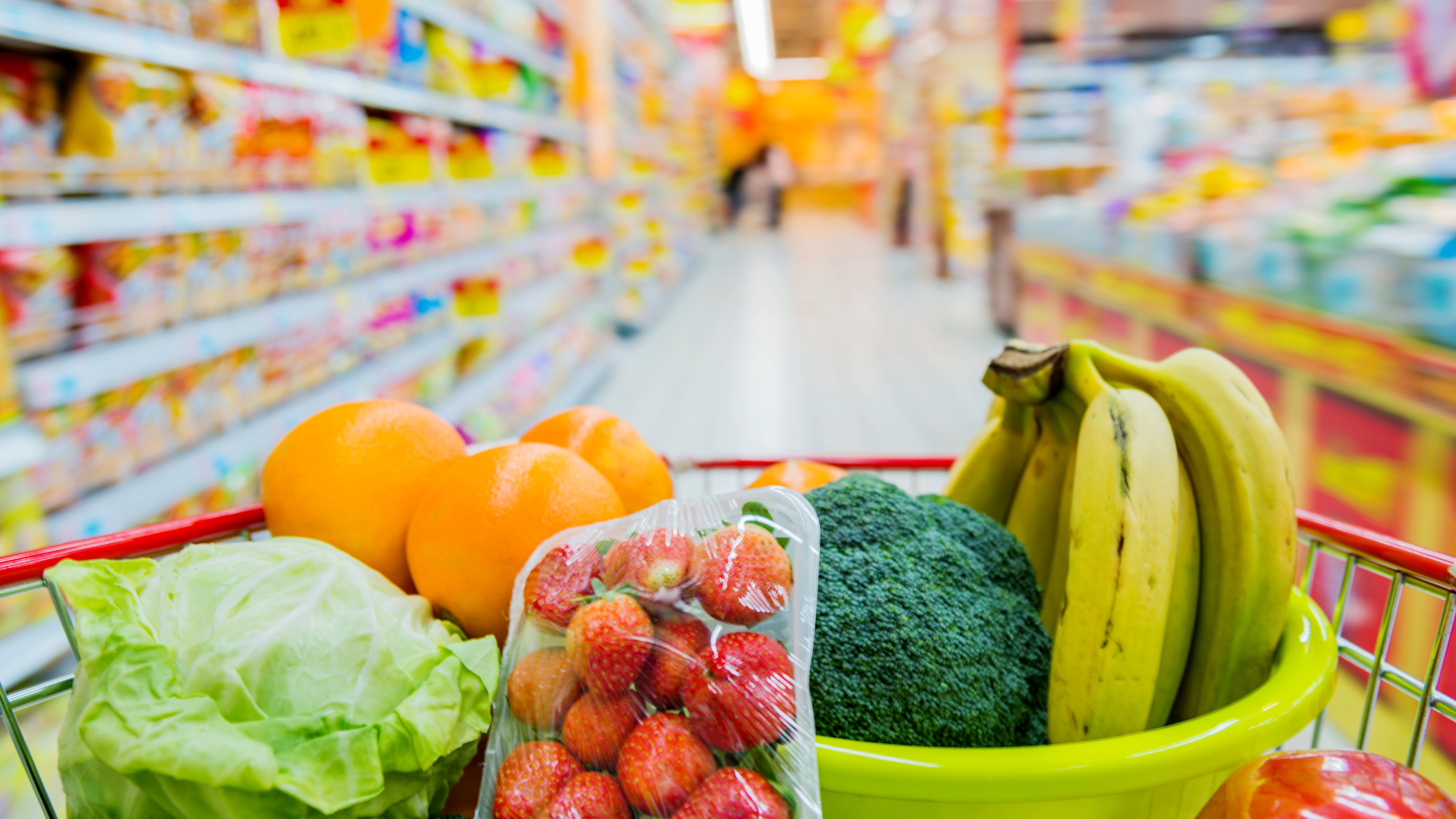My semester in New Zealand began alone and jet-lagged in my new campus apartment. Move-in day was bustling just outside my window, an amalgam of voices against the silent walls reminding me that I didn’t know a soul for ten thousand miles. Weird! In no less than ten minutes I was barreling down the road towards the shopping center. The Countdown supermarkets massive boxy warehouses painted bright green and standing out from the apartments that surround it. I was grateful that Countdown contained all the essentials I needed for my first week. Crumpets were the first unfamiliar food I discovered and purchased that day. Not sweet and fluffy as I had imagined, but instead porous, dense and chewy. That’s one amusing aspect of studying abroad— you get excited over the little things!
There’s a lot to learn in a foreign grocery store. Most surprising, to an American, is the entrance and walking pattern. When I entered the store, I almost immediately bumped into someone as they walk on the left! While this is true everywhere in New Zealand, it’s especially important when you’re wielding a giant cart. I have had to stop and readjust, and give an apology more than once for disrupting the flow of the aisle. I have been here over a month and still find myself on the wrong side of the aisles, staircases, and sidewalks wondering if my brain will ever adapt.
The currency exchange is a also huge adjustment. The U.S. dollar is about 1.5 New Zealand dollars, so prices are misleadingly expensive— especially at checkout when a week’s groceries is well over 100 NZD. To my relief, groceries are comparatively a bit cheaper and at worst equal to Boston prices. I haven’t fumbled with my calculator in quite awhile now and can translate NZD to USD in my head. Still, items like eggs and honey are notably expensive. When buying eggs it’s also common to see a one-carton purchasing limit or an empty shelf as a result of recent legislation in 2012 that would incrementally ban the use of battery cages for layer hens over a ten-year phase-out process. So why are eggs and honey so pricey?
Upon looking into it, I discovered that the law above is not what it seems. The ban, effective January 1st of this year, was specifically placed on battery cages, not cages in general. The egg industry now uses colony cages, which are slightly larger and house more hens, but still are extremely confined spaces stacked on top of each other. Visually, there’s no formidable difference between a colony cage and battery cage. The hens live in a miserable situation; they cannot forage, dust bathe, or free roam on the ground as they normally would. It’s like an actor in a terrible wig. After discovering this, I’ve tended to shop at the Saturday morning Christchurch Farmer’s Market where there are several ethical egg stands instead.
Turning to honey, I learned that Manuka honey is special commodity exclusive to New Zealand’s native Manuka tree. Honey earns the Manuka label when the bees exclusively or almost exclusively source their nectar from Manuka flowers, providing the honey with a long list of medicinal and nutritional health benefits. Among these merits are trace amounts of B-vitamins, antioxidants, and topical uses like reducing inflammation for wounds and burns— which is used in traditional Maori medicine. You can buy an (expensive) bottle of Manuka honey, but there are also loads of Manuka-inspired products. I have seen Manuka chocolate, lip-balm, yogurt, lozenges and lemonade. I sometimes look at things and think “does it have Manuka?” The answer is usually yes.
There are also quite a few other common New Zealand flavors and brands to find in the grocery store. Firstly, passion fruit is a prevalent flavor and often offered as a topping in ice cream shops. Popular beverages (and my vices) include V Energy Drinks, Lemon & Paeroa soft drinks, and too many NZ beer brands to name. I have also been loving chocolate Afghan cookies and hokey pokey flavored ice cream (made of plain vanilla with honeycomb toffee chunks). Lolly cakes are a dessert trend I’m less keen on. In simple terms, lolly cakes are malt biscuits and fruity marshmallows combined to create a overly-sweet taste and blocky appearance. To each their own, I say! You can find them in supermarkets, but also in about every convenience store and café adjacent to my favorite food trend— meat pies! Meat pies are infinite in supply and flavor— butter chicken, venison, thyme, and red wine with happily meatless vegetable and potato options as well. I began eating meat again two months ago after two years as a pescatarian— so my first bite of a steak and mushroom pie was totally new. Just as new as the first time I saw someone walk around the grocery store barefoot.
After that moment, I knew I had to try it myself. I was skeptical of this perfectly normal kiwi custom, so my friends and I pulled off our shoes and walked six minutes to the store. I was unaware of the many textures that populate the route I’ve walked dozens of times. The pavement in the apartment complex was the dirtiest, and varied from smooth to coarse. The sidewalks uneven, grainy. The craggy roads tickled my feet as we crossed. Once we arrived our exposed toes were hit by a wave of chilliness. I could feel every breeze and drop in temperature, the frozen section was the worst, with the fruit and vegetables coming in close second—the refrigeration mist just discernable. I noticed that while the floors weren’t pristine, they still felt relatively clean. For the first time in awhile I was connected to the ground I walked on. I absolutely loved it. This kiwi custom aligns with the practice of grounding, or earthing. To ground yourself is to physically touch the Earth, connecting to it’s electrical impulses and garnering health benefits like improved circulation and decreased stress and depression. I admire kiwis for so casually including the practice in their daily life, and wish the United States would adopt barefoot grocery runs into the norm. However, the germaphobe inside me lives on. Realistically, the floor of a grocery store is not much dirtier than the floor of my apartment, where five people circulate in and out all day.
Kiwi groceries have reminded me to remain open-minded and adventurous. You can challenge your concept of normal anywhere, even in a grocery store. Soon enough I’ll go everywhere barefoot, meat pie in hand.











